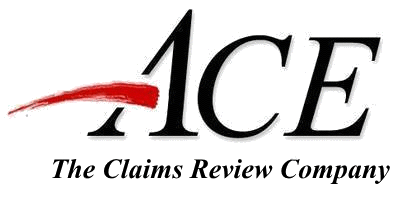
|

|
SubReview: Response to Arbitration Forum
The Panelist is the newsletter of Arbitration Forums, Inc.
In The Panelist, fall of 2002, the following blurb appeared entitled, "Chipping" Estimates:
"If a Respondent contests damages and the only evidence submitted to support their damages position is an audit of the Applicant's estimate, the Applicant should be awarded their full damages (liability being a separate issue). In order to successfully reduce an Applicant's damages, a Respondent must inspect and write their own estimate. If the vehicle is not inspected - the Respondent has not seen the vehicle and written their own estimate, the Respondent's damages argument should not prevail. In short, a Respondent cannot cut an Applicant's estimate if they have not done their own."
This statement is puzzling. For instance, could the good folks at Arbitration Forums, Inc. tell us how they determine liability without having seen the accident? Well, of course they could. They would tell us that they gather all of the available facts, and apply time-honored industry standards. They use years of experience in liability issues to inform their decisions, and use good old common horse sense and fairness to arrive at their conclusions.
ACE has been auditing and settling auto physical damage subrogation claims since 1995 using basically the same criteria that Arbitration Forums, Inc. has been using on the liability side: the facts, industry standards, experience, common sense, and fairness. We, like Arbitration Forums, Inc., believe that no one should pay anyone anything he doesn't owe. Therefore, we sent the following letter to the editor of The Panelist. We hope that it answers any questions that you or The Panelist might have regarding what our SubReview service is all about.
The Editor
The Panelist
Arbitration Forums, Inc.
3350 Buschwood Park Drive Suite 295
Tampa, FL 33618
November 19, 2002
Dear Sir:
I am writing to take issue with a recent piece in The Panelist entitled "Chipping" Estimates, regarding respondents contesting damages on applicants' subrogation demands. This article was no less misleading for its brevity.
The Panelist asserted that if the respondent has not visually inspected the damaged vehicle (despite his best efforts to do so), he has no right to contest the damages and should reimburse the applicant, no questions asked. ACE department audits and settles thousands of subrogation demands a year to protect our customers from poorly written estimates, and we beg to differ. The same principles that apply to medical utilization reviews under liability and workers compensation apply generally in the realm of automobile physical damage.
When an applicant submits an estimate at variance with industry standards, not to mention the rules of arithmetic, the respondent is certainly under no obligation to reward such errors. In fact, the respondent would be obligated to protect his company from such errors whether he were reviewing the estimate before or after repairs, whether in the presence of the damaged vehicle or from his desk; the same obligation that the applicant had before paying what wasn't owed. Who would argue that it is not remiss to pay what is not owed, or at best, what is not documented?
Here is a partial list of the errors we see daily:
- New parts written for older vehicles when LKQ or remanufactured OE parts were readily available locally.
- Unsupported estimating system overrides in both parts and labor.
- Failure to take betterment when applicable.
- Excessive rental charges.
- Failure to account for refinish overlap.
- Undocumented lump-sum charges.
- Unsupported, duplicated, or excessive towing charges.
- Duplication of included operations.
In each instance the applicant or his representative saw the damages and still wrote estimates not in conformity with industry standards.
Visual inspection does not guaranty accuracy, and paying a second time for what shouldn't have been paid once is unnecessary. The Panelist should think better of essentially advocating that an unmonitored margin of error should be expected of insurers.
Sincerely,
John A. Gizzio, Jr.
President, ACE
Click here for the Panelist's Response